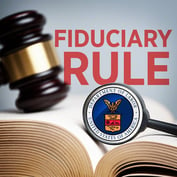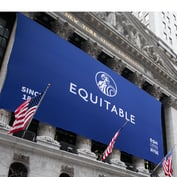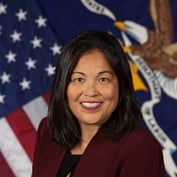The Labor Department’s latest fiduciary project, which was finalized on April 23, has been a completely partisan and rushed effort from the start. On Oct. 31, 2023, the President Joe Biden publicly endorsed finalizing the proposal without any changes reflecting public input.
One would have thought that Labor would at least have made changes reflecting the views of congressional Democrats. But one would have been wrong about that, as shown below in my first official regulatory report card.
Labor just didn’t have the time or interest in really listening to anyone. I tried to be as fair as I could and even gave out two As, giving Labor credit for fixing two obvious mistakes, but Labor failed to address all other Democratic concerns.
Rushing the Process
A letter from eight Democratic senators, led by Sen. Jon Tester of Montana, stated: “[W]e believe it is critically important to significantly extend the comment period … [W]e are concerned that you are rushing this project and the people that will be hurt are the ones you are trying to help the most.”
DOL Grade: F
Not only did DOL not extend the comment period, but they actually accelerated the pace of rulemaking. A study of DOL’s substantive retirement rules still in effect shows that over the past 15 years, DOL spent the shortest time finalizing the current fiduciary rule — 66 days, with the next shortest time being 110 days.
Letting Customers Decide What Relationship They Want
A letter from 30 House Democrats, led by Rep. Gwen Moore of Wisconsin, stated: “When a financial institution agrees with a customer expressly, clearly, and in writing that it is providing brokerage services only, would that agreement be determinative in that a fiduciary relationship with respect to that arrangement is not created?”
DOL Grade: F
DOL flatly rejected this point, rejecting a commenter’s request “that a financial institution may agree with a customer expressly, clearly, and in writing that it is only providing brokerage trade execution services (i.e., acting as an order taker) and such agreement may govern to avoid ERISA fiduciary status.”
Letting Employees Get Help From Call Centers
Moore letter: “Additionally, we have heard concerns that interactions between recordkeepers, recordkeeping support, and call centers may cease because of a lack of clarity regarding what functions they could perform without being treated as fiduciaries.”
DOL Grade: F
DOL flatly rejected this request, stating that it “declines to provide a broader limitation for call center activity” and that “Covered recommendations … should … not [be subject to] a different standard merely because they are made in a call center setting.”
Providing Clear Rules
Moore’s letter states: “[W]e are concerned that the guidance in the proposed rule may not sufficiently differentiate between sales and education and at what point an informational event becomes fiduciary. Does DOL differentiate between information provided during sales that describes products that a particular broker offers and recommendations?”
DOL Grade: F
DOL addressed the sales issue by saying that if assistance is not fiduciary advice under the fiduciary definition, it is not fiduciary advice. Really, that is what it says. So, that clearly does nothing.
On the education issue, DOL again did nothing, simply reiterating its prior position without any further specificity: “the Department confirms that providing educational information and materials such as those described in [current law] IB 96-1 will not result in the provision of fiduciary investment advice as defined in the final rule absent a recommendation.”









 April 26, 2024 at 03:27 PM
April 26, 2024 at 03:27 PM










